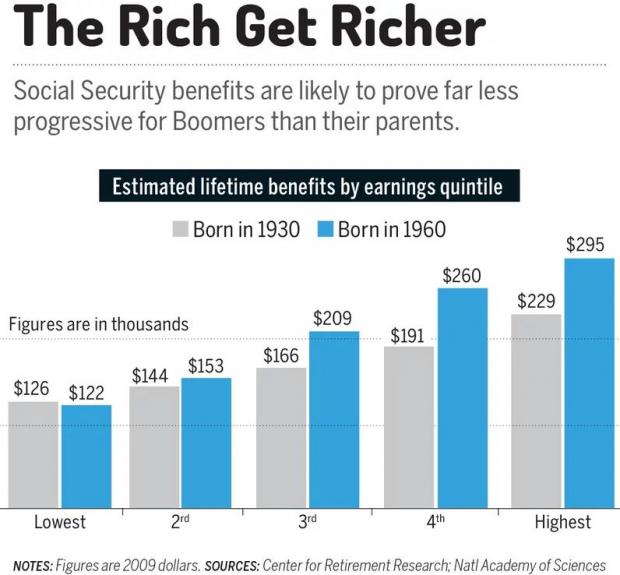Unequal gains in life expectancy over the last half-century between Americans with greater earnings and education and those of lower socioeconomic status mean that the benefits of Social Security are increasingly tilting toward wealthy retirees, according to a new report from the Center for Retirement Research at Boston College highlighted by Money magazine’s website.
The study says that top earners born in 1960 can expect to collect $295,000 in Social Security benefits over their lifetime, a 29 percent increase over top earners born 30 years earlier. Meanwhile, someone in the lowest income quintile born in 1960 can expect to collect $122,000 in benefits, on average, down from $126,000 for a person in the lowest-income group born in 1930.
Changes in health care have apparently played a big role. “Healthcare quality has improved for all income groups,” writes Money’s Ryan Derousseau. “However, wealthy Americans and those living in areas with more generous publicly funded health benefits, have tended to fare the best, says study author Matthew Rutledge.” On top of that, lower income Americans were slower to give up smoking than higher income individuals in recent decades, affecting life expectancy rates. And poorer, sicker people are less able to delay taking Social Security in order to maximize their benefits.





